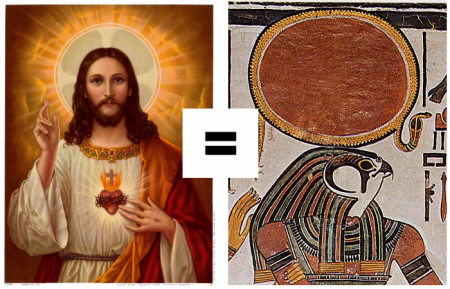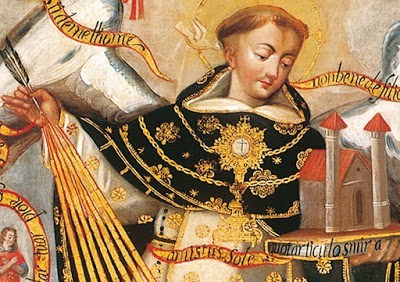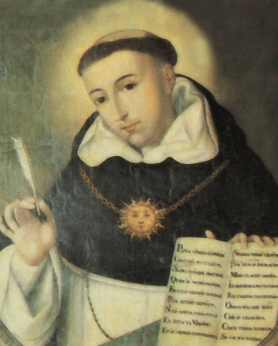Matt Fradd's Blog, page 48
January 17, 2017
Aquinas on Whether the Incarnation was Necessary

Haven’t subscribed to Pints With Aquinas yet? Do that here.
Want to support the show? Do that here.
In today’s episode we ask Thomas about the incarnation—was it necessary? Aquinas says yes. Not in the strict sense of necessity but in the sense that what was attained by the incarnation was done so better and more conveniently.
I springboard from that onto a popular objection to the historicity of Jesus Christ on the internet today, namely, Jesus was just a spin-off of pagan deities.
Enjoy the show!
January 10, 2017
Thomas Aquinas’ 5 Remedies for Sorrow
If you haven’t subscribed to Pints With Aquinas, you can do that here.
Also, see what cool thank you gifts you can get by supporting the podcast here.
On today’s episode I discuss Aquinas’ 5 remedies for sorrow with philosopher Fr. Damian Ference.
In the first part of the second part of the Summa, question 38, St. Thomas lays out 5 ways to overcome sorrow. Below is a snippet of what he says about each remedy. Listen to the podcast to learn more.
1. Pleasure
Pleasure is a kind of repose of the appetite in a suitable good; while sorrow arises from something unsuited to the appetite. Consequently in movements of the appetite pleasure is to sorrow, what, in bodies, repose is to weariness, which is due to a non-natural transmutation; for sorrow itself implies a certain weariness or ailing of the appetitive faculty.
Therefore just as all repose of the body brings relief to any kind of weariness, ensuing from any non-natural cause; so every pleasure brings relief by assuaging any kind of sorrow, due to any cause whatever.
2. Tears
Tears and groans naturally assuage sorrow: and this for two reasons. First, because a hurtful thing hurts yet more if we keep it shut up, because the soul is more intent on it: whereas if it be allowed to escape, the soul’s intention is dispersed as it were on outward things, so that the inward sorrow is lessened.
This is why men, burdened with sorrow, make outward show of their sorrow, by tears or groans or even by words, their sorrow is assuaged. Secondly, because an action, that befits a man according to his actual disposition, is always pleasant to him.
Now tears and groans are actions befitting a man who is in sorrow or pain; and consequently they become pleasant to him. Since then, as stated above, every pleasure assuages sorrow or pain somewhat, it follows that sorrow is assuaged by weeping and groans.
3. Friends
When one is in pain, it is natural that the sympathy of a friend should afford consolation: whereof the Philosopher indicates a twofold reason.
The first is because, since sorrow has a depressing effect, it is like a weight whereof we strive to unburden ourselves: so that when a man sees others saddened by his own sorrow, it seems as though others were bearing the burden with him, striving, as it were, to lessen its weight; wherefore the load of sorrow becomes lighter for him: something like what occurs in the carrying of bodily burdens.
The second and better reason is because when a man’s friends condole with him, he sees that he is loved by them, and this affords him pleasure, as stated above. Consequently, since every pleasure assuages sorrow, as stated above, it follows that sorrow is mitigated by a sympathizing friend.
4. Contemplating Truth
the greatest of all pleasures consists in the contemplation of truth. Now every pleasure assuages pain as stated above: hence the contemplation of truth assuages pain or sorrow, and the more so, the more perfectly one is a lover of wisdom.
And therefore in the midst of tribulations men rejoice in the contemplation of Divine things and of future Happiness, according to James 1:2: “My brethren, count it all joy, when you shall fall into divers temptations”: and, what is more, even in the midst of bodily tortures this joy is found; as the “martyr Tiburtius, when he was walking barefoot on the burning coals, said: Methinks, I walk on roses, in the name of Jesus Christ.”
5. Sleep and Baths
Augustine says: “I had heard that the bath had its name [Balneum, from the Greek balaneion] . . . from the fact of its driving sadness from the mind.” And further on, he says: “I slept, and woke up again, and found my grief not a little assuaged”: and quotes the words from the hymn of Ambrose, in which it is said that “Sleep restores the tired limbs to labor, refreshes the weary mind, and banishes sorrow.”
You can read the entirety of what Aquinas has to say here.
January 7, 2017
Eye of the Tiber Book Causes Matt Fradd to Look Crazy on Recent Flight
I have admired the work of EOTT (Eye of the Tiber) for some time now. If you’re not familiar with EOTT think, The Onion (satirical news site), but about all things Catholic.
Hilarious! Here’s a few of my favorite articles . . . try and read just the titles without smirking.
Study Finds That Tripping Over Vestments And Falling On Face During Mass Sucks A Lot
Vatican Investigating Possible Russian Orthodox Hack Of 2013 Papal Elections
Rookie Monk Out For Advent Season With High Tonsure Sprain
Well, now EOTT has come out with a book! 
December 27, 2016
If God is All-Knowing How Can We Have Free Will?
If you haven’t subscribed to Pints With Aquinas yet, do it here.
Also, see what cool thank you gifts you can get by supporting the podcast here.
In this podcast we’ll ask Aquinas about free will; do we have it? And if we do, how is that possible since God is supposed to be all-knowing? If he knows exactly what I’m going to do, how can we talk about free will in any meaningful sense?
We’ll also talk about an objection often raised by atheists about the concept of God, namely, if God is all-knowing he should know what it’s like to be afraid, right? But if he knows what it’s like to be afraid then he can’t be all-powerful. And if doesn’t know what it’s like to be afraid then he isn’t all knowing … Right? Wrong. I explain why in today’s podcast.
Enjoy!
Here’s how Aquinas responded to the following questions:
Does Man Have Free Will?
It is written (Sirach 15:14): “God made man from the beginning, and left him in the hand of his own counsel”; and the gloss adds: “That is of his free-will.”
I answer that, Man has free-will: otherwise counsels, exhortations, commands, prohibitions, rewards, and punishments would be in vain. In order to make this evident, we must observe that some things act without judgment; as a stone moves downwards; and in like manner all things which lack knowledge. And some act from judgment, but not a free judgment; as brute animals. For the sheep, seeing the wolf, judges it a thing to be shunned, from a natural and not a free judgment, because it judges, not from reason, but from natural instinct. And the same thing is to be said of any judgment of brute animals. But man acts from judgment, because by his apprehensive power he judges that something should be avoided or sought. But because this judgment, in the case of some particular act, is not from a natural instinct, but from some act of comparison in the reason, therefore he acts from free judgment and retains the power of being inclined to various things. For reason in contingent matters may follow opposite courses, as we see in dialectic syllogisms and rhetorical arguments. Now particular operations are contingent, and therefore in such matters the judgment of reason may follow opposite courses, and is not determinate to one. And forasmuch as man is rational is it necessary that man have a free-will.
ST. I, Q. 83, A. 1.
Does God Know Future Contingent Things?
God knows all things; not only things actual but also things possible to Him and creature; and since some of these are future contingent to us, it follows that God knows future contingent things.
In evidence of this, we must consider that a contingent thing can be considered in two ways; first, in itself, in so far as it is now in act: and in this sense it is not considered as future, but as present; neither is it considered as contingent (as having reference) to one of two terms, but as determined to one; and on account of this it can be infallibly the object of certain knowledge, for instance to the sense of sight, as when I see that Socrates is sitting down. In another way a contingent thing can be considered as it is in its cause; and in this way it is considered as future, and as a contingent thing not yet determined to one; forasmuch as a contingent cause has relation to opposite things: and in this sense a contingent thing is not subject to any certain knowledge. Hence, whoever knows a contingent effect in its cause only, has merely a conjectural knowledge of it. Now God knows all contingent things not only as they are in their causes, but also as each one of them is actually in itself. And although contingent things become actual successively, nevertheless God knows contingent things not successively, as they are in their own being, as we do but simultaneously. The reason is because His knowledge is measured by eternity, as is also His being; and eternity being simultaneously whole comprises all time, as said above (I:10:2). Hence all things that are in time are present to God from eternity, not only because He has the types of things present within Him, as some say; but because His glance is carried from eternity over all things as they are in their presentiality. Hence it is manifest that contingent things are infallibly known by God, inasmuch as they are subject to the divine sight in their presentiality; yet they are future contingent things in relation to their own causes.
ST. I, Q. 14, A. 13.
If you want to support Pints With Aquinas (even for as little as $2 a mont) you can now do that! Click here and learn about the cool thank you gifts on offer for all supporters.
December 20, 2016
Thomas Aquinas’ Brilliant Commentary on the Hail Mary

Yo, first things first, if you haven’t yet subscribed to Pints With Aquinas, do that here.
Aquinas wrote a work entitled “On the Angelic Salutation” in which he writes commentary on each line of the Hail Mary. Well, just the first half. The second half, which begins, “Holy Mary, Mother of God,” wasn’t added till after Thomas’ time.
If you want to grow in your understanding of the Blessed Mother, you should listen to this podcast.
And please consider buying my new book, Pints With Aquinas: 50+ Deep Thoughts From the Angelic Doctor. And yes, it’s also available on Kindle.
December 13, 2016
Should We Pray to the Saints in Heaven?

In today’s episode of Pints With Aquinas (you should totally subscribe here if you haven’t already) we ask Thomas the question, should we pray to the saints in Heaven?
Be sure to listen to the episode above, but here’s the essence of Thomas’ response:
I answer that, As Jerome says (Cont. Vigilant. 6), the error of Vigilantius consisted in saying that “while we live, we can pray one for another; but that after we are dead, none of our prayers for others can be heard, seeing that not even the martyrs’ prayers are granted when they pray for their blood to be avenged.”
But this is absolutely false, because, since prayers offered for others proceed from charity, as stated above (Articles 7 and 8), the greater the charity of the saints in heaven, the more they pray for wayfarers, since the latter can be helped by prayers: and the more closely they are united to God, the more are their prayers efficacious: for the Divine order is such that lower beings receive an overflow of the excellence of the higher, even as the air receives the brightness of the sun. Wherefore it is said of Christ (Hebrews 7:25): “Going to God by His own power . . . to make intercession for us” [Vulgate: ‘He is able to save for ever them that come to God by Him, always living to make intercession for us.’].
Hence Jerome says (Cont. Vigilant. 6): “If the apostles and martyrs while yet in the body and having to be solicitous for themselves, can pray for others, how much more now that they have the crown of victory and triumph.”
(ST. II-II, Q. 83, A, 11)
December 7, 2016
Why did Thomas Aquinas Deny the Immaculate Conception?
If you haven’t yet subscribed to Pints With Aquinas, do that here.
“How can you say the immaculate conception of Mary is true when St Thomas Aquinas didn’t even believe it?” That is a question that I have had put to me by more than one protestant friend.
The first time I heard it it really struck me. To be honest it made me panic. But the fact is, St Thomas believed Mary was sinless, but he did not understand the immaculate conception as we do today.
If you want to understand this whole issue, be sure to listen to the entirety of the podcast above.
A Short Interview on the Immaculate Conception
Here is an interview I did on the immaculate conception on the Sonrise Morning Show.
December 2, 2016
8 Beautiful Advent Songs to Remind You It’s Not Yet Christmas
Yep, Christmas carols have begun already—and that’s cool! I’m not one of these Catholics that won’t allow Christmas songs until it’ Christmas, but, but, it’s not yet Christmas. It’s Advent. SO! Here are 8 BEAUTIFUL Advent songs to remind you that Christmas is not here yet.
Viva la Advent!
1. O Come O Come Emmanuel
2. O Come Divine Messiah
3. Come Thou Long Expected Jesus
4. Ave Maria
5. Come Thou Fount of Every Blessing
6. Every Valley Shall Be Exalted
7. Hark! A Thrilling Voice is Sounding
8. Veni Veni Emmanuel (Latin version)
November 29, 2016
The Contingency Argument for God’s Existence
Subscribe to Pints With Aquinas on iTunes here.
In this episode of Pints With Aquinas I chat with philosopher Robert Delfino about Thomas’ 3rd argument for the existence of God, commonly called the contingency argument.

Here’s how Thomas lays it out:
“The third way is taken from possibility and necessity, and runs thus. We find in nature things that are possible to be and not to be, since they are found to be generated, and to corrupt, and consequently, they are possible to be and not to be. But it is impossible for these always to exist, for that which is possible not to be at some time is not.
Therefore, if everything is possible not to be, then at one time there could have been nothing in existence. Now if this were true, even now there would be nothing in existence, because that which does not exist only begins to exist by something already existing.
Therefore, if at one time nothing was in existence, it would have been impossible for anything to have begun to exist; and thus even now nothing would be in existence — which is absurd. Therefore, not all beings are merely possible, but there must exist something the existence of which is necessary.
But every necessary thing either has its necessity caused by another, or not. Now it is impossible to go on to infinity in necessary things which have their necessity caused by another, as has been already proved in regard to efficient causes.
Therefore we cannot but postulate the existence of some being having of itself its own necessity, and not receiving it from another, but rather causing in others their necessity. This all men speak of as God.”
ST 1. Q. 2, A 3.
Robert’s Break Down of the Argument
(this will make way more sense if you’ve heard—or are listening to—the podcast).
1. We find in reality some things that are capable of existing and not existing, because they are found to be generated and to corrupt.
2. We call such beings possible beings.
3. A possible being cannot be the cause of its own existence.
4. This is so for two reasons: (1) It would already have to exist in order to cause its own existence, but if it already exists then it does not need to cause its own existence, and (2) If it caused its own existence then it would be both prior to itself and also not prior to itself, which is a contradiction and thus impossible.
5. Therefore a possible being must get its existence from a cause that exists external to it.
6. It is impossible that everything which exists is a possible being.
7. The reason is that nothing could have begun to exist in reality if everything were a possible being because a possible being only comes to exist through an already existing cause external to it, which would not exist if everything were a possible being.
8. But if nothing could have begun to exist in reality then nothing would have existed in the past and nothing would exist now, because “from nothing, nothing comes.”
9. But this is absurd because things exist now.
10. Thus not all things are possible beings—at least one necessary being must exist.
11. There are 2 ways for a being to be necessary: (1) it can get its necessity from another; (2) it can get its necessity from itself (per se).
12. If it has its necessity from another, then it requires a cause external to it.
13. An infinity of beings that get their necessity from another would not explain how anything came to exist, just as it is clear from the above that an infinity of possible beings would not explain how anything came to be.
Conclusion: There must be a cause that has of itself (per se) its own necessity (i.e., it does not receive necessity from another), and on which all other beings are, ultimately, dependent for their existence. And this we call God.
November 28, 2016
Cabin in the Woods + No Technology =
Last week we (my fam-jam) spent four days in North Georgia in a cabin without technology.
Here’s my son Peter by the chapel I tried praying with him in.

Matt Fradd's Blog
- Matt Fradd's profile
- 168 followers





